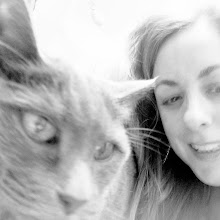 Festival
Festival(Murray Lerner, USA, 1967, 95 minutes)
Well, all you ladies gather around.
The good sweet candy man's in town.
It's the candy man, candy man.
--Mississippi John Hurt (1963)
Because the answer is still blowin' in the wind, Festival is a welcome reminder about the breadth and depth of folk. Since the genre has been around for so long (seemingly forever) and shows no signs of stopping--whether we're talking the polished folk-pop of Jewel or the freak-folk of Devendra Banhart and friends--it's easy to take for granted. It's just as easy to forget that folk isn't a singular look or sound, and that there was a time when it captured the popular imagination the way rock would in the 1970s.
There are glimpses of the decade to come in this handsome B&W film, which looks at the Newport Folk Festival, circa 1963-1966: In Paul Butterfield's rocked-up blues, in the newly-electrified Dylan, and mostly in Howlin' Wolf, kicking up a sweat-stained ruckus in a way that would have a profound effect on an upcoming generation of British rockers (especially Led Zeppelin). Then there's his hyped-up growl of a voice. It may be a slight exaggeration, but I can't imagine Captain Beefheart or Tom Waits without it. And if it sounds like I think Wolf is the shit, that’s ‘cause I do!
 But Festival isn't just about the big names. It's also a glimpse at the smaller, more eccentric ones (Cousin Emmy, Almeda Riddle, Fiddler Beers, et al.), as well as the thousands of fans who made the Rhode Island gathering a major cultural event in the 1960s, leading up to Monterey Pop and Woodstock later in the decade, and numerous festivals in the present day, like Lollapalooza and Coachella, the latter of which will have its own film screened as part of the "Music Festivals on Film" series (see below).
But Festival isn't just about the big names. It's also a glimpse at the smaller, more eccentric ones (Cousin Emmy, Almeda Riddle, Fiddler Beers, et al.), as well as the thousands of fans who made the Rhode Island gathering a major cultural event in the 1960s, leading up to Monterey Pop and Woodstock later in the decade, and numerous festivals in the present day, like Lollapalooza and Coachella, the latter of which will have its own film screened as part of the "Music Festivals on Film" series (see below).Both stylistically and chronologically, Lerner's Oscar-nominated doc lies somewhere between Jazz on a Summer's Day (1960) and Wattstax (1973). That means musical performances combined with artist interviews (Joan Baez, Mel Lyman, etc.) and commentary from the crowd. There's even an act who appears in two of the films: The Staple Singers. There may be others, but it was the Staples who caught my attention as they were more of a gospel act in Festival. By the time of Wattstax, they had completely--and gloriously--funkified their sound.
I've mentioned few of the folk acts most closely associated with the era. Rest assured they're there. In terms of screen time, Baez, Peter, Paul and Mary, and Dylan (both before and after he plugged in), get plenty of it. It's just that I was most looking forward to the bluesmen, like Sonny Terry and Brownie McGhee and Mississippis Fred McDowell and John Hurt--and yes, that marks the third time I've typed the words "John Hurt" in the past two weeks. What the hell, he deserves it (both Johns, that is). All deliver, especially the latter with an entrancing version of "Candyman."
On the down side, Johnny Cash's iconic "I Walk the Line" isn't shown in its entirety and that was a disappointment (it isn't the only such instance). I don't think Cash has ever looked happier, and I was totally digging it. I was also amused to note that he was chewing gum. It reminded me of the Jam's appearance on the recently released DVD The Tomorrow Show With Tom Snyder: Punk & New Wave. Between verses of "Pretty Green," Paul Weller smacks away on his gum. It's still a great performance.
Also, the way Lerner (Jimi Hendrix at the Isle of Wight) cuts between the casually dressed Mike Bloomfield and sartorial splendid Son House is irritating at first, i.e. young, old, white, black, plain, fancy, etc. At the same time, it's kind of cool, because Bloomfield ends up giving one of the funniest interviews in the film. Frankly, I was a little shocked when he dropped the intel that his dad's a multi-millionaire (and that he had a rockin' bar mitzvah). It wasn't hip to cop to that kind of thing back then--better to pretend to be working class. Still, Bloomfield admits that House is blues in a way he'll never be, but that smokin' harmonic player Paul Butterfield comes close.
Festival ends with a group sing-a-long led by Pete Seeger. It represents another link with the present as Bruce Springsteen has just released We Shall Overcome: The Seeger Sessions. The fact that Seeger is still kickin' in his 80s makes the timing all the sweeter. (Too bad Woody Guthrie didn’t live to see Wilco and Billy Bragg introduce him to a new audience via Mermaid Avenue.) Not only is it the best thing the Boss has done in years, but Seeger's songs are more relevant now than ever--yet more evidence that folk lives on in all kinds of ways and in all kinds of people.
Note: Click here for alternate version. Images from the AMG.

No comments:
Post a Comment